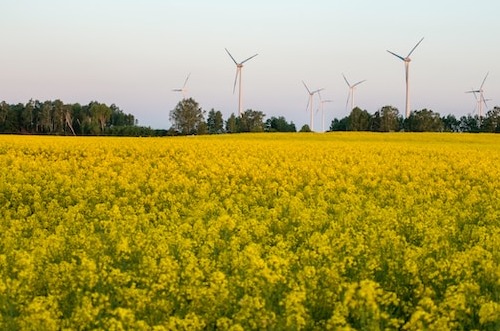W5 Canola/Rapeseed Update: Canada Sets Record with 14% YoY Surge in Canola Processing Volumes, Reaching 4.57 MMT in 2023/24 MY

Canada's Canola Processing Hits Record High in 2023/24 MY
From Aug-23 to Dec-23 of the 2023/24 marketing year (MY), Canada achieved record-high canola processing volumes, totaling 4.57 million metric tons (mmt), marking a 14% year-on-year (YoY) increase. On Dec-23 alone, oilseed processing reached 943 thousand metric tons (mt), resulting in canola oil production of 402.2 thousand mt and meal production of 549.3 thousand mt. Analysts forecast further growth, projecting canola processing in Canada to reach between 10.5 to 10.7 mmt for the 2023/24 MY, indicating a 20% YoY increase.
Canada's Canola Acreage to Shrink in 2024
Canadian farmers plan to reduce canola acreage by 1.5% YoY in 2024. Conversely, acreage for three legume crops is expected to increase, with chickpeas leading the growth at 17% YoY. In the past decade, this trend marks the seventh instance where legume crops have surpassed oilseeds in sowing. The reduction in oilseed acreage is due to low canola prices, low soil moisture in late autumn, high raw material costs, and minimal anticipated increases in wheat prices.
Russia Introduced Import Quotas for Agricultural Seeds from Unfriendly Nations
Russia implemented import quotas for seeds of various agricultural crops from unfriendly countries, totaling 33.1 thousand mt, effective until December 31, 2024. The restrictions cover a range of crops including potatoes, wheat, rye, barley, corn, soybeans, rapeseed, sunflowers, and sugar beets. This measure follows the approval of a list of agricultural seeds subject to import restrictions in Jun-23, aimed at regulating seed imports and promoting domestic agricultural production.
Tajikistan to Procure 300 thousand MT of Oilseeds from Russia in Cooperation Roadmap
As part of the cooperation roadmap between Tajikistan and Russia's agriculture ministries, Tajikistan intends to procure approximately 300 thousand mt of oilseeds from Russia. Tajikistan's Minister of Agriculture stated that the purchases would primarily consist of sunflower and rapeseed seeds. The procurement process has commenced, with an initial shipment expected to deliver around 50 thousand mt of oilseeds.
Rapeseed Dominance in Romania's Oilseed Crop
In the 2023/24 MY, Romania witnessed a remarkable increase in oilseed cultivation, particularly rapeseed, reaching levels unseen since the 2015/16 marketing year. This shift altered the crop structure, with rapeseed's share rising to 32% while sunflower's decreased to 60%. Despite fluctuations in rapeseed yields, 2023/24 MY has seen a successful harvest, reaching a record high. Romania's biofuel production capacity has expanded considerably, largely utilizing domestically sourced raw materials, with any surplus harvest being exported primarily to European countries like Germany, France, and Belgium.
Kazakhstan's Oilseed Exports Dipped in Dec-23
In Dec-23, Kazakhstan's oilseed shipments decreased by 0.4% month-on-month (MoM), totaling 76.3 thousand mt, while exports dropped by 2.3 times compared to the same period last year, amounting to 178.2 thousand mt. Flax sales accounted for 30.2% of the total volume, while all rapeseed exports, totaling 4 thousand mt, were destined for France. Kazakhstan is contemplating the implementation of export duties on soybeans and rapeseed.
India to Boost Rapeseed Production to Reduce Vegetable Oil Import Dependence
India, the largest importer of vegetable oil globally, aims to reduce its reliance on costly imports by bolstering domestic oilseed production. The Finance Minister announced plans to enhance self-sufficiency in oilseed cultivation, including rapeseed, peanuts, sesame, soybean, and sunflower, as part of efforts to curb the record-high expenditure of USD 20.8 billion on edible oil purchases in the fiscal year ending Mar-23.